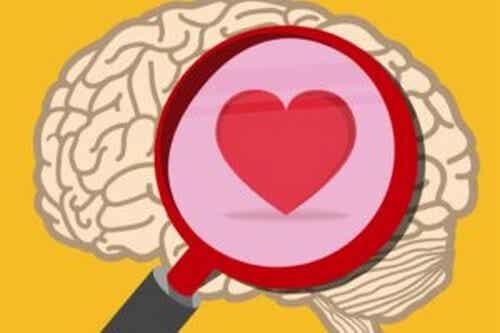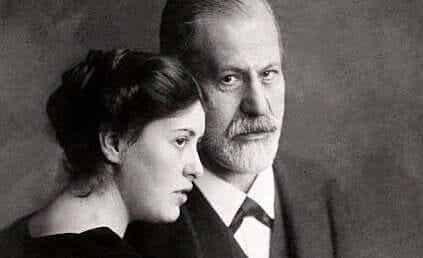Addictive love is the trap of excessive emotional attachment. The search for a saving love that ends up denying love for oneself.

Last update: February 21, 2021
Love is an engaging, constructive, but also destructive feeling. Depending on how it is experienced, it can motivate us to grow or prevent it altogether, as in the case of dependent love. Furthermore, in a society where the ideal of romance is still firmly established, it is often difficult to build a healthy and fluid relationship.
Much more than we would like, patients of a psychologist often complain of problems related to love. Perfectly functional at work, in family or social relationships and in other vital areas, they look totally different when they come across a romantic relationship. Because?
The experiences lived in childhood and in some cases during adolescence or early adulthood leave a profound mark. The parenting styles we grew up with and underdeveloped self-esteem can form the basis the predisposition for toxic relationships.
When the child does not acquire self-confidence and self-confidence, it becomes more difficult for him to manifest them in adulthood. There remains a void that it will try to fill in some way.
It is not about "blaming" someone, simply no one is perfect. Parents often make mistakes. In most cases, because we live in a system that “forces” us to spend too much time outside the home, to neglect important issues such as family, to be hectic and stressed.
Children end up feeling lonely and we don't even notice it. I perceive that parents, their vital point of reference, are never available and this is how the idea of abandonment is born. A feeling that can translate into dependent love in adulthood.
Emptiness and dependent love
When we break a leg, we have to use crutches. These "prostheses" are useful for compensating for our shortcomings; thanks to them we can walk and carry out our daily activities. That means, when we physically need a prosthesis, it becomes functional until we are able to proceed without it.
On a psychological level and with reference to love, the same thing often happens. The absence of parents, abuse, childhood trauma, etc., cause us to develop an emotional lack or emptiness. That emptiness that is created in our soul accompanies us until adulthood, and is so painful and disabling that it induces us to look for a crutch to be able to move forward. But, surprise! It's not as effective as when we break a leg.
When we fill our void with our partner, we tend to repeat what we experienced in childhood. We choose partners who in some sense resemble what we already know. The brain is more comfortable with what it is familiar with, albeit painful.
The result is that the relationship doesn't work, it becomes toxic. On the one hand, the lack we feel generates feelings of jealousy, possession or dependence, as we try to prevent “abandonment” from happening again.
On the other hand, it is also possible that the partner will eventually abandon us or in some way treat us badly, as has already happened in the past. It is not bad luck, it is not the case. When developing a pattern, it is common to repeat it. And here we find ourselves saying: “the same always happens to me”, “I have no luck in love”.
Without realizing it, we recall situations that we experienced a long time ago. It can be an immense fear of being alone or being left behind. For every relationship that fails, the void gets bigger. The idea of abandonment and failure feeds more and more. Where are we wrong?
Addictive love: what if we stop supporting ourselves with a crutch?
Addictive love is never the best choice. It can be functional in the short term, but becomes a heavy burden if continued over time.
It can give us the false feeling that it is good for our self-esteem, that we are finally fine, and that now it "works". But that's not quite the case. For the relationship to be successful and love to become a path without too many obstacles, it is necessary that the love we think we need is born from us and for us.
The therapeutic key to freeing ourselves from addictive love lies in understanding that, although we really needed the care and affection of our parents, now, as adults, we can be autonomous.
Conclusions
We grow when we learn to feel good about ourselves, with our inner dialogue. That's why making peace with loneliness is a great start in these cases. Strive to be alone for some time, make plans on your own, tolerate boredom or annoying emotions.
Without addictions, without deficiencies, without needs. Start a relationship that brings added value, that is satisfying, because it is simply beautiful, easy, healthy, fun. Not because it is necessary.
Only then will you no longer depend on any crutch to move forward. You will walk alone and that emptiness will be filled with your own esteem. Have the courage to love yourself unconditionally and to let go of the burden of dependent love.


























